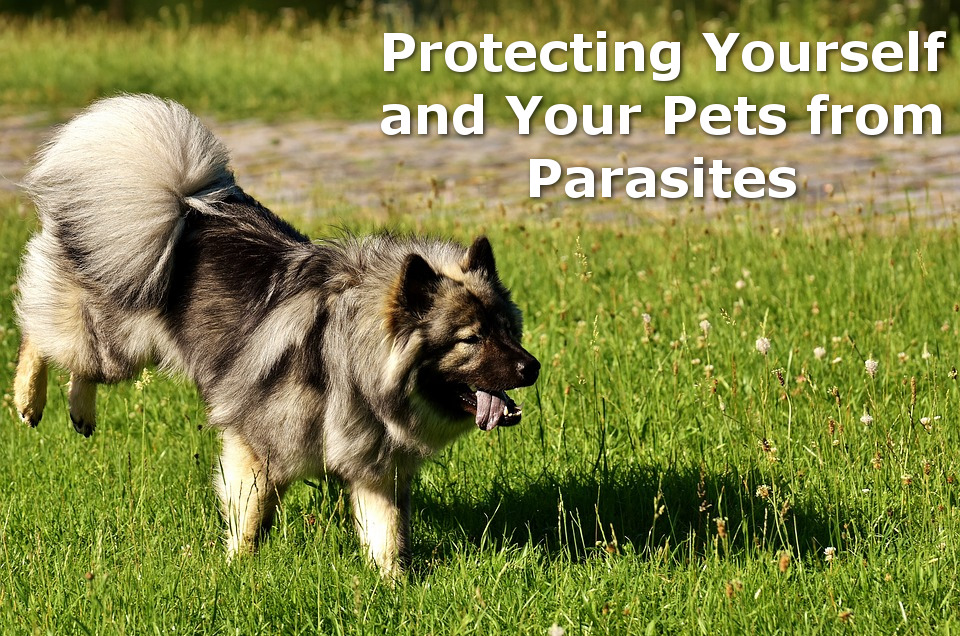Many don’t know that some parasites can actually be transferred from pets to people. Parasites are organisms that live in or on our pets and include external parasites such as fleas, ticks and internal parasites like worms and protozoa. Roundworms and hookworms are also common parasites in pets that can affect people as well. All Pets Veterinary Medical Center offers tips on protecting yourself and your pets from these harmful parasites.
All Pets Veterinary Medical Center Offers Roundworms Treatment in Pets
Roundworms are a common parasite found in in the intestines of pets. Pets can come into contact with roundworms either from an infected mother through nursing or through exposure to roundworms eggs found in the soil. If your pet gets roundworm eggs on its feet or fur, it will often ingest them when grooming itself.
In pets, roundworms can cause various symptoms, with many showing no symptoms at all. Common symptoms All Pets Veterinary Medical Center sees in our patients include:
- poor hair coat
- pot-bellied appearance
- failure to grow or thrive
- weight loss
- vomiting
While rare, pets can pass adult roundworms in the stool or vomit. However, if you don’t see worms in your pets stool, this does not mean that your pet is free of parasites.
Roundworms in People
Roundworms can be transmitted from pets to people. This can be done by ingesting dirt contaminated with round worm eggs. While this is seen most commonly in children, adults who are exposed to soil through work, gardening or other means can also become infected.
Most individuals infected with roundworms have no symptoms, but this parasite can cause serious illness. Once roundworm eggs are consumed by a person, this parasite can travel throughout the body, causing fever, cough, pneumonia, liver disease and even permanent blindness if it travels to the eye.
Hookworms Treatment is Another Service All Pets Veterinary Medical Center Offers
Hookworms are another parasite found in pets, and are more common in warmer climates. Pets can be exposed to hookworms from an infected mother through nursing, from ingesting hookworm eggs, or from penetration of hookworms through the skin.
Pets with hookworms infections may have the following symptoms:
- poor appetite
- cough
- diarrhea
- constipation
- pale gums, lips and ears
Hookworms in People
Hookworm infections can be developed through exposure to the feces of infected pets. Hookworms larvae can penetrate through the person’s skin, and the most common route of exposure is through skin contact of contaminated soil or sand such as by walking barefoot or sitting on the ground.
Hookworm infection in people can cause the an extremely itchy, raised red rash. While rare, hookworms can infect the intestines, resulting in abdominal pain and diarrhea.
All Pets Veterinary Medical Center’s Treatment for Roundworms and Hookworms
All Pets Veterinary Medical Center can diagnose parasites in your pet by examining a fresh stool sample under a microscope. If diagnosed, we can prescribe medications that will effectively treat these parasites. We usually recommend a follow up stool testing to monitor the effectiveness of the treatment.
All Pet Veterinary Medical Center’s Tips for Protecting Yourself and Your Pet from Parasites
- Always pick up and dispose of animal feces immediately.
- Wash your hands thoroughly after cleaning up after your pet.
- Wash your hands before preparing food, and wash all produce before eating or preparing it.
- Wear shoes when outdoors.
- Keep sand boxes covered when not in use.
- Make sure your pet receives regular veterinary care, including parasite testing.
- Discuss an effective parasite prevention program with your veterinarian.
Don’t hesitate to contact us here at All Pets Veterinary Medical Center with the link below for more information or to develop an effective parasite prevention program for your pet’s lifestyle!
















